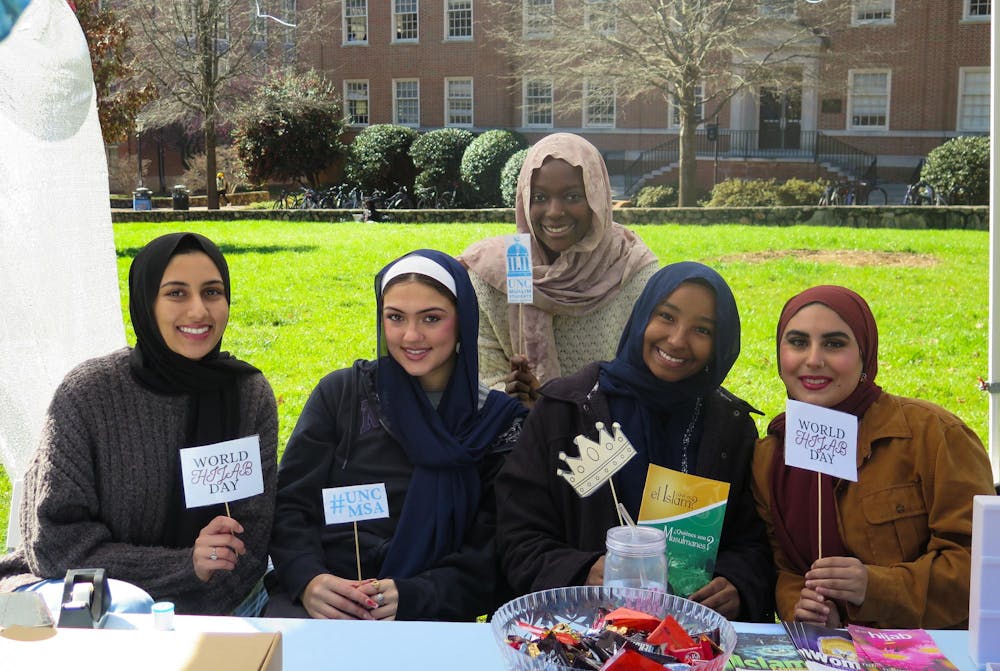For some students, art clubs and groups act as an outlet for them to communicate their feelings creatively.
Junior Anshu Shah, president and editor-in-chief of Monsoon, UNC’s South Asian magazine, said that the club hopes that the work they feature destigmatizes mental health struggles for the South Asian community.
“In order for [mental health] to be a more open thing that everyone can talk about, we encourage submissions for it — we encourage submissions that can make the artists feel like their mental health is being heard and taken into consideration,” Shah said.
Another group that combines mental well-being with creativity is the CAPS group Dancing Mindfulness for Emotional Wellness, which is specifically for students of color. In this group, students read "The Gifts of Imperfection" by Brené Brown, discuss emotional wellness principles and dance to whatever music they like.
Mil Witt, assistant director of psychology training at UNC and the leader of Dancing Mindfulness, said the movement part of the group is especially important, given how much time students spend stressed and sitting in one place.
“In addition to talking about the emotional wellness principles, we're also helping to relieve some of that stress through the movement practice,” Witt said. “And it's very empowering because they have a choice.”
Other CAPS groups are catered to multiple communities at once. CAPS therapist Sophia Davis started the therapy group Intersections: A QTPOC Support Group in fall 2021, created for students of color who are on the LGBTQ+ spectrum, or are questioning their gender or sexuality.
Davis began the group after hearing that students were looking for a space that allowed them to discuss both aspects of their identities. Davis said that LGBTQ+ people of color are disproportionately affected by mental health issues, and a chosen community can provide protection and support.
For students of color seeking connection, Apoyo is the CLC’s mental health support group for undergraduates. The group is run by UNC double-alumna Theresa Flores. The group offers a brave space for members to share the "experiences, joys and challenges that come along with identifying and experiencing life as a Latinx person," according to the program's website.
“The whole purpose of doing Apoyo was to bring the community together and really break the stigma of what is mental health within our community,’ Salazar said.
Some students of color also build communities in spaces historically held by white students, like Greek life. Holloway is the president of the Kappa Omicron Chapter of Delta Sigma Theta Sorority, Inc., UNC’s first African American sorority.
She said being part of her sorority "completely made" her UNC experience and opened doors to a larger community. There, she was welcomed not only by her chapter but also by other Black Greek life members.
To get the day's news and headlines in your inbox each morning, sign up for our email newsletters.
“Without my chapter, without my sorority, I would have a very hard time being at UNC and enjoying that time,” she said.
First-year Fatima Khan said she found community through UNC’s Muslim Student Association before even stepping foot on campus.
She said she wasn’t sure she wanted to go to UNC until they made her feel involved and welcome. At UNC, she tried using CAPS and said it did not compare to having friends she knew she could reach out to.
“I didn't feel as connected in group therapy as I did with just knowing that there's a Muslim community and there's Muslim people I can reach out to and feel comfortable around,” she said.
@dailytarheel | @dthlifestyle
university@dailytarheel.com | lifestyle@dailytarheel.com




